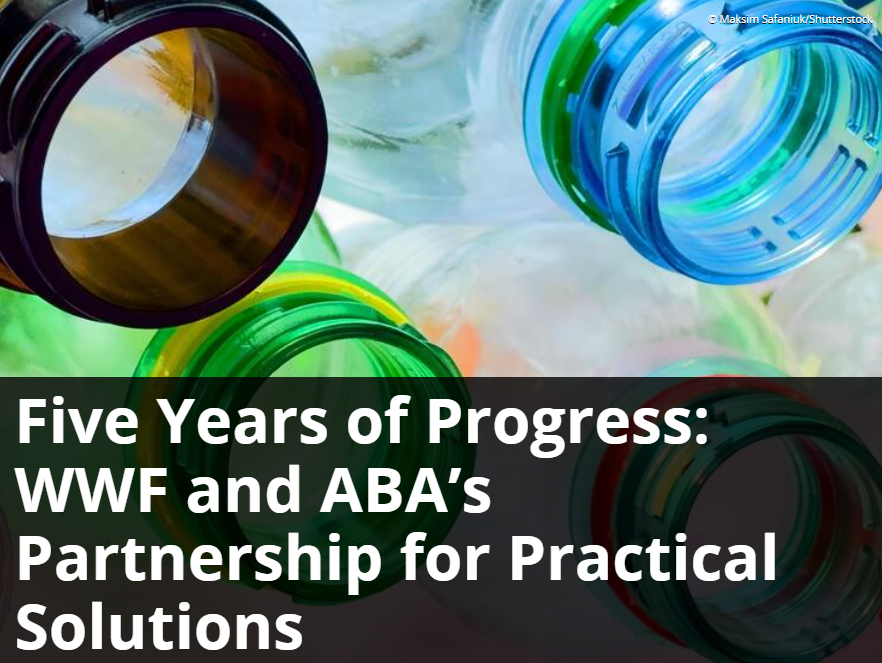
In 2019, World Wildlife Fund (WWF) and American Beverage (ABA) joined forces to tackle a growing environmental crisis: plastic waste. This partnership is driven by one shared goal: to ensure that every plastic bottle remains in the loop to become another bottle, moving the world towards less plastic use and no plastic in nature. This kind of “circular economy” ensures materials are remade, reducing the need for new plastic and minimizing environmental impact. To that end, over the past five years we’ve worked to deliver meaningful, practical, and innovative solutions — and our efforts have yielded significant results.
Central to our partnership has been advancing systems-level changes for material circularity. A major focus of our work is extended producer responsibility (EPR), a policy mechanism that shifts the financial responsibility for recycling consumer packaging and paper products to the companies that produce them. Together, we’ve advocated for good EPR policies in key states such as Colorado, Washington, New Jersey, and in 2024, celebrated a major win as Minnesota became the fifth state to pass EPR legislation. This sets the stage for more states to follow in 2025 as we continue leveraging the OneSource Coalition to drive state-by-state action plans.
Transparency has been another cornerstone of our partnership. By aligning the ABA Plastic Footprint Framework with WWF’s ReSource Footprint Tracker, we’ve established clear, credible metrics for tracking plastic use and recovery through the ABA’s Every Bottle Back program. These shared metrics allow us to monitor our progress effectively, build trust with stakeholders, and push the beverage industry toward sustainable practices.
Beyond policy and transparency, our partnership has sparked significant innovation within the beverage sector. We are looking forward to the further exploration of reuse and refill systems and continued improvements to recycling infrastructure through the industry’s $100 million commitment to recycling system modernization, aligning our organizations to continue advancing circular economy solutions.
As we move into the next phase of our partnership, we remain focused on reducing plastic waste. Broader collaborations, such as with the OneSource Coalition and the U.S. Plastics Pact, continue to amplify our impact.
We also know that there’s something to be said for the parallel roles that WWF and ABA play in their respective industries in the way that both organizations act as trusted partners and brokers across other players in their respective sectors. ABA leverages their membership and cuts across big brands to think about improvements to the whole system. Like WWF, ABA sees the bigger picture for our planet. And, our deep alignment on goals has sparked creativity in this partnership.
As we reflect on five years of impactful work, we’re proud of the progress we’ve made together. But this is just the beginning. Our commitment to delivering practical, lasting solutions remains strong, and we’re excited to continue driving change that benefits people and the planet.
Article Credit: worldwildlife